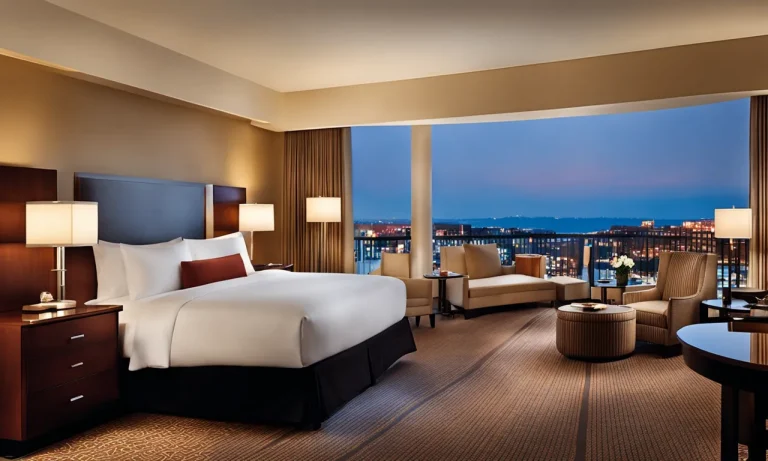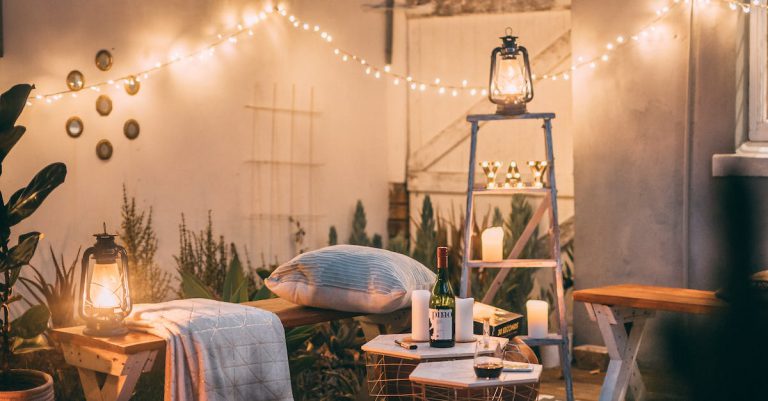If you’re short on time, here’s a quick answer to your question: A Bed and Breakfast (B&B) is a small lodging establishment offering overnight accommodation and breakfast, typically in a private home or a unique setting, embodying a homely atmosphere distinct from large hotel chains.
B&Bs often highlight personal service and character, creating a unique travel experience. The roots of B&Bs can be traced back to medieval times in Europe, where monasteries offered shelter and food to weary travelers. Over time, these establishments evolved, taking on cultural nuances, to become the diverse B&Bs we see today.
In this article, we’ll delve deeper into the fascinating world of B&Bs, exploring their unique features, comparing them with other types of accommodation, discussing their role in the hospitality industry, examining the B&B experience, and looking at modern trends and challenges in the industry.
Features of a Bed and Breakfast Hotel
Types of accommodations offered in B&Bs
Bed and Breakfast hotels, commonly known as B&Bs, offer a unique lodging experience that differs from traditional hotels. Typically, B&Bs are small, family-owned properties that offer a limited number of rooms. These rooms are often individually decorated and offer a more personal touch than standard hotel rooms.
Guests can choose from a variety of room types, including single rooms, double rooms, and suites. Many B&Bs offer rooms with private bathrooms, while others have shared bathrooms. Additionally, some B&Bs offer separate cottages or cabins for guests who want a more secluded experience.
Explanation of unique amenities and features typically found in B&Bs
B&Bs are known for their unique amenities and features that set them apart from traditional hotels. One of the most notable features is the complimentary breakfast that is included in the room rate. These breakfasts are often homemade and may include items such as fresh fruit, baked goods, and local specialties.
In addition to breakfast, B&Bs often offer amenities such as afternoon tea or happy hours with wine and appetizers. Some B&Bs provide guests with access to communal spaces, such as a living room with a fireplace, or a garden area where guests can relax and enjoy the scenery.
The communal atmosphere and personalized service at B&Bs
One of the main draws of B&Bs is the communal atmosphere and personalized service that guests receive. Unlike larger hotels, B&Bs offer a more intimate setting where guests can interact with each other and the owners of the property.
Owners of B&Bs often act as hosts and are available to offer recommendations on local attractions, restaurants, and activities. This personalized service ensures that guests have a memorable experience and feel like they are part of the local community.
How B&Bs Differ from Other Accommodation Types
What is the difference between a bed and breakfast and a normal hotel that offers breakfast?
by u/captainyeahwhatever in NoStupidQuestions
Comparison of B&Bs with traditional hotels
While traditional hotels often have a standardized look and feel, bed and breakfast hotels provide a more unique, personalized experience. B&Bs are typically smaller and family-owned, with a limited number of rooms to ensure guests receive individualized attention. In contrast, hotels can be large and impersonal, with hundreds of rooms and guests to manage.
Another key difference is the level of service provided. B&Bs often offer homemade breakfasts, personalized recommendations for local attractions and activities, and a more homey atmosphere. Hotels, on the other hand, frequently offer amenities such as room service, fitness centers, and swimming pools.
Comparison of B&Bs with vacation rentals and hostels
While vacation rentals and hostels may provide a more budget-friendly option, they often do not include the personalized attention and amenities provided by B&Bs. Vacation rentals can also be more isolated, whereas B&Bs are typically located in residential neighborhoods or historic districts, offering guests a more authentic local experience.
Hostels, on the other hand, are often geared towards younger travelers and backpackers, with shared dormitory-style accommodations and limited privacy. B&Bs, on the other hand, offer private rooms and personalized attention for a more comfortable and intimate experience.
Highlighting the unique selling points of B&Bs
One of the key selling points of B&Bs is their unique character and charm. Each B&B is different, with its own style, decor, and history. This makes them an ideal choice for travelers looking for a more personalized experience.
Another advantage of staying at a B&B is the opportunity to connect with locals. Many B&B owners are passionate about their community and can provide insider tips and recommendations for local restaurants, attractions, and events.
Finally, B&Bs often offer a more intimate and romantic atmosphere, making them a popular choice for couples. Whether you’re looking for a cozy fireplace, a relaxing hot tub, or a quiet garden, B&Bs offer a range of amenities to make your stay memorable.
The Role of B&Bs in the Hospitality Industry
Bed and Breakfast Hotels, commonly known as B&Bs, have been a popular lodging option for travelers since the 18th century. B&Bs are small, family-owned establishments that offer guests a comfortable room and a homemade breakfast. In recent years, B&Bs have become an increasingly important part of the hospitality industry. Here are some of the roles B&Bs play in the industry:
Economic Impact of B&Bs Globally and Locally
B&Bs have a significant economic impact on both a global and local scale. According to a report by the World Tourism Organization, B&Bs account for a significant portion of the global tourism market. In 2019, B&Bs generated over $200 billion in revenue globally. This revenue supports local economies by creating jobs and generating tax revenue.
Locally, B&Bs play an important role in supporting small businesses and promoting tourism. Many B&Bs are located in rural areas or small towns where there may be limited lodging options. By providing a unique and personalized experience for guests, B&Bs can attract tourists and help support local businesses.
B&Bs as a Sustainable Tourism Option
B&Bs are often considered a sustainable tourism option. Unlike large hotels, B&Bs are typically family-owned and have a smaller environmental footprint. B&Bs also tend to source their food and amenities locally, which supports the local economy and reduces transportation emissions. Additionally, B&Bs often encourage guests to explore the local area on foot or bike, reducing the environmental impact of transportation.
The Influence of B&Bs on Community Development
B&Bs can have a positive influence on community development. By attracting tourists to rural areas and small towns, B&Bs can help revitalize local economies. Additionally, B&Bs often partner with local businesses and organizations to offer guests unique experiences, such as tours of local farms or cooking classes featuring local ingredients. These partnerships can help strengthen the local community and create a sense of pride in the area.
The B&B Experience
Staying at a bed and breakfast (B&B) hotel is a unique and charming experience that offers travelers an alternative to traditional hotel accommodations. A typical B&B stay involves lodging in a private room, often in a historic or residential home, with breakfast included in the price of the room. Unlike a hotel, B&Bs offer a more personalized experience that immerses guests in the local community and culture.
Description of a typical stay at a B&B
Upon arrival at a B&B, guests are usually greeted by the hosts who will show them around the property and provide information about the area and local attractions. The rooms in a B&B are often decorated with antiques or unique furnishings that reflect the character and history of the property. In the morning, guests are treated to a homemade breakfast that is typically served in a communal dining area where they can socialize with other guests.
The importance of hosts in the B&B experience
The hosts of a B&B play a critical role in creating a welcoming and comfortable atmosphere for guests. They are often local residents who can provide insider knowledge about the area and recommendations for restaurants, activities, and events. Hosts also have a personal touch that can make guests feel at home, whether it’s offering homemade snacks, providing extra amenities like bikes or beach gear, or simply engaging in friendly conversation.
Examples of various B&B themes and styles around the world
B&Bs come in all shapes and sizes, and each one offers a unique experience for travelers. Some B&Bs are located in historic homes or mansions, while others are situated on working farms or vineyards. Some B&Bs cater to specific interests like birdwatching or antique shopping, while others offer luxurious amenities like spa treatments or private hot tubs. Some popular B&B themes and styles around the world include:
- Victorian-era B&Bs in the United States and England
- Chateaux and castles in France
- Ryokans in Japan
- Riads in Morocco
- Treehouses and yurts in the United States and Canada
Whether you’re looking for a romantic getaway, a family vacation, or a unique travel experience, a stay at a bed and breakfast hotel is sure to provide a memorable and enjoyable experience.
Modern Trends and Challenges in the B&B Industry
Bed and Breakfast hotels, or B&Bs, have been around for centuries, providing travelers with a cozy and intimate lodging experience. However, in recent years, the industry has faced numerous challenges due to changing consumer preferences and external factors like the COVID-19 pandemic. Here are some modern trends and challenges that are impacting the B&B industry:
Effect of technology and online booking platforms on B&Bs
The rise of technology and online booking platforms like Airbnb and Booking.com has made it easier for travelers to find and book accommodations. While this has increased the visibility of B&Bs, it has also created competition and challenges for smaller, independent properties that may not have the resources to invest in online marketing and advertising. Additionally, B&Bs must adapt to new technology like mobile check-ins and digital key cards in order to provide seamless experiences for guests.
Impact of the COVID-19 pandemic and recovery strategies
The COVID-19 pandemic has had a significant impact on the travel industry, including B&Bs. Many properties were forced to close temporarily, and those that remained open faced reduced occupancy rates and increased cleaning and safety protocols. As the world recovers from the pandemic, B&Bs must adapt to new traveler preferences like contactless check-ins and flexible cancellation policies. Additionally, properties that offer unique outdoor experiences like hiking or fishing may see increased demand as travelers seek out nature-based vacations.
Future trends and potential challenges for the B&B industry
The future of the B&B industry is uncertain, but there are some trends and potential challenges that may impact properties in the coming years. For example, sustainability and eco-tourism are becoming increasingly important to travelers, so B&Bs that prioritize green practices and local sourcing may have a competitive advantage. Additionally, as the population ages, B&Bs may need to adapt to the needs of older travelers by providing accessible rooms and amenities. Finally, B&Bs must continue to innovate and provide unique experiences to stand out in a crowded market.
Conclusion
In conclusion, Bed and Breakfasts offer a unique, personal, and immersive experience unlike any other accommodation type. With their rich history, diverse offerings, communal atmosphere, and important role in the hospitality industry, they create lasting memories for travelers. The inherent charm of B&Bs lies in the individual personalities and styles that vary from place to place, driven by the hosts who infuse their own personal touch into the services.
Modern trends and challenges have encouraged B&Bs to evolve and adapt, demonstrating resilience in the face of change. As we move forward, B&Bs will continue to be an integral part of the hospitality industry, preserving their unique character while embracing the future. Thus, whether for a local getaway or an international adventure, a stay at a B&B offers a unique window into the heart and soul of a place.






